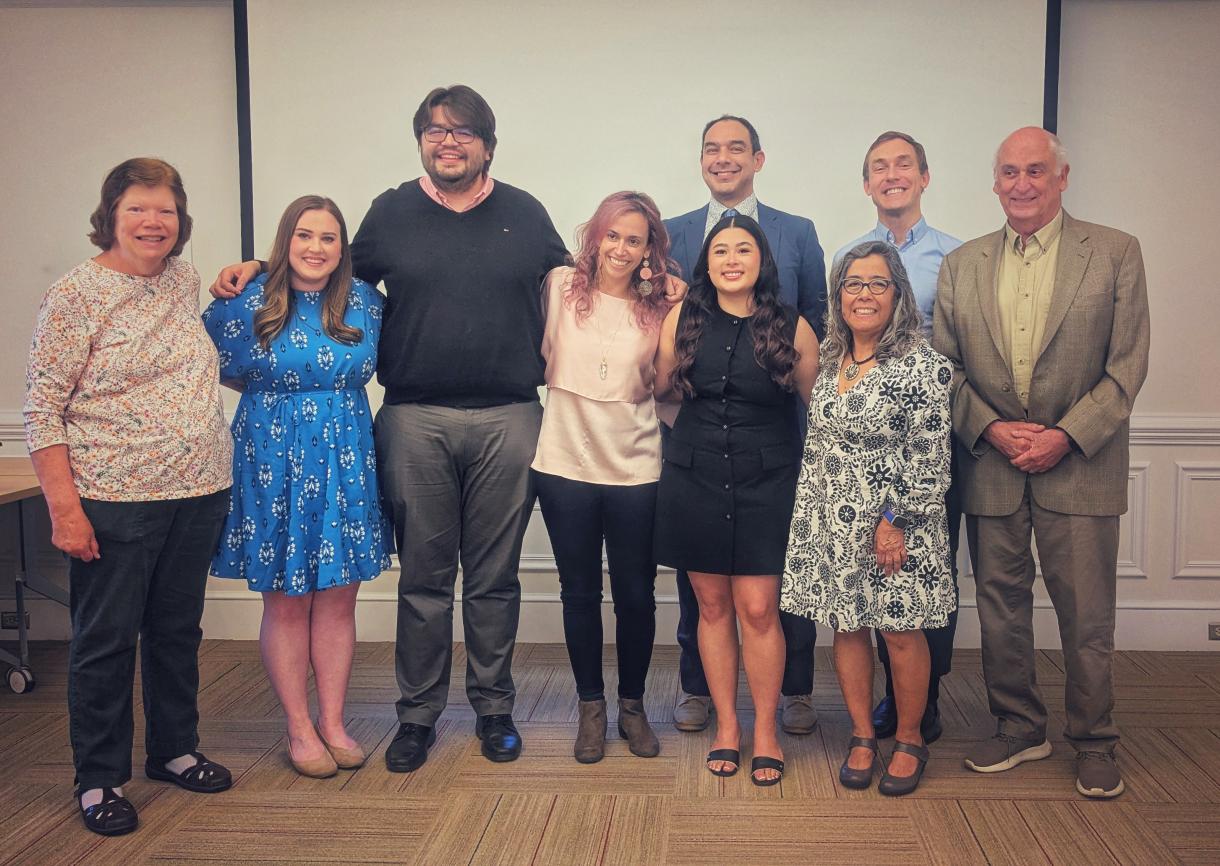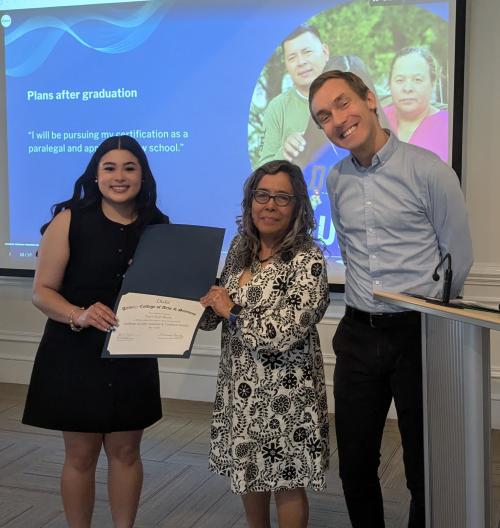
CLACS congratulates graduates who completed the Certificate in Latin American & Caribbean Studies
The Center for Latin and Caribbean Studies was proud to present one undergraduate and seven PhD students the Certificate in Latin American and Caribbean Studies on Thursday, May 8, 2025.
Two students also received the Dennis Clements award for service to the university.
Duke students can earn the certificate by taking specialized courses and undertaking research in Latin America and/or the Caribbean, and by demonstrating fluency in Spanish, French, Portuguese, or a less commonly taught language such as Quechua, K'iche' Maya, or Haitian Creole.
CLACS director Liliana Paredes said research these students conducted in and about Latin America spanned many disciplines: from history to public health, from literature to ocean studies and sustainability, from the study of whales to the study of economies, from questions of language to questions of migration.
"These diverse paths are connected by a shared desire to understand the region in all its complexity and to imagine more just futures," she said.

Nayeli Reyes Rivera received the undergraduate certificate and also the Dennis Clements award for her many activities during her four years at Duke, including serving as a student curator and speaker for the exhibit Nuestra Historia, Nuestra Voz / Our History, Our Voice: Latinés at Duke (Our History, Our Voice: Latines at Duke) at the Museum of Durham History. The exhibit opened in January 2025.
Rafaella Lobo received her PhD in Marine Science and Conservation from the Nicholas School of the Environment at the end of summer 2024, but she was able to attend the certificate ceremony and receive the second Dennis Clements award. Rafaella wrote her dissertation, Western Superwhales or Ballenas Hermanas? on the international politics of whaling and whale conservation and now continues her work for the World Wildlife Fund.
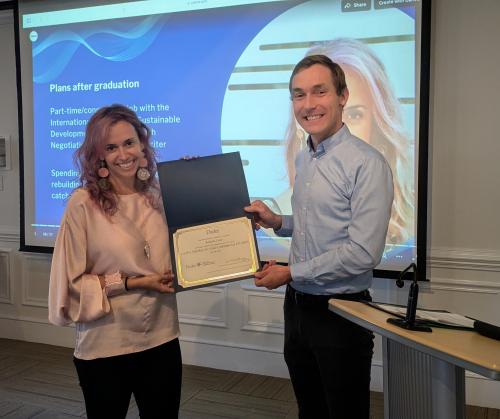
Sydney Marshall received her PhD in History this spring and earned her certificate for her dissertation, Sisters of Struggle: Left Feminism, Transnational Networks, and the Frente Continental de Mujeres Contra la Intervención, 1945-1990, and also announced she has received a faculty appointment at Wingate University in North Carolina.
Mateo Villamizar-Chaparro earned his PhD in Political Science in summer 2024 but collected his certificate and acknowledgement for his work on the Latin American Politics Working Group with the UNC-Duke Consortium in Latin America and Caribbean Studies. He is now an assistant professor at the Social Sciences Department at Universidad Católica de Uruguay.
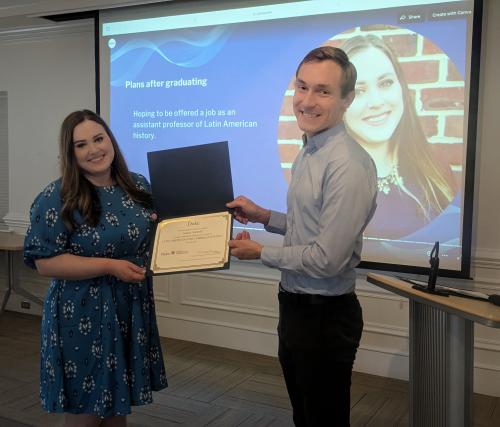
Though they could not be present, Tayzhaun Glover (graduated summer 2024) and Ian Erickson-Kery (fall 2024) were both recognized for earning the certificate and for their recent academic appointments.
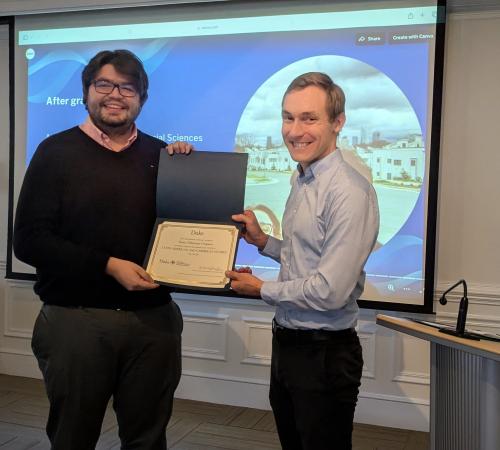
The CLACS team congratulates these graduates for their achievements and for their passion for the region.
Director Paredes told the gathering, "Latin America and the Caribbean matter, not only because of their rich cultural and linguistic diversity, or their deep histories of resistance and creativity, but because they invite us to think critically about global challenges: inequality, migration, climate change, extractivism, and the future of democracy.
"To engage with Latin America is to engage with a region that continually demands new ways of seeing, of listening, and of imagining more equitable futures; not only there, but everywhere.
"Your time studying, researching, and connecting with communities in Latin America has not only enriched your own experiences. It has also left a mark on the people, histories, and landscapes you have encountered. And in turn, those encounters have left a mark on you. That is the power of engaged scholarship. It reshapes us. It reminds us that knowledge is never one-way, and that we are accountable for how we learn and for what we do with what we learn."
